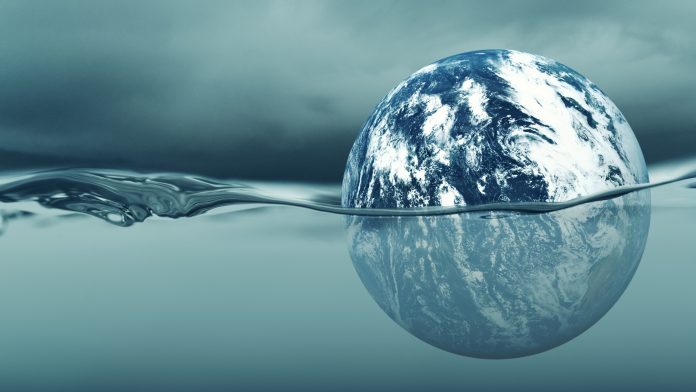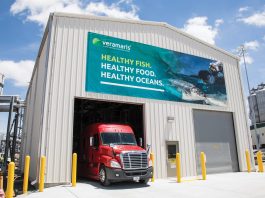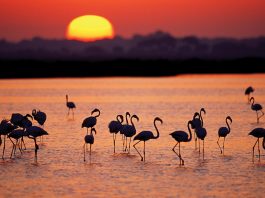Dr Matt Frost, Deputy Director of the Marine Biology Association (MBA), speaks to International Editor Clifford Holt about the importance of the UN Decade of Ocean Science for Sustainable Development and how scientific evidence can help inform marine science policy.
As highlighted by the Marine Biology Association (MBA), the need to ensure a sustainable future for the oceans is one of the great missions of the next decade. The UN Decade of Ocean Science for Sustainable Development (2021-2030), a collective endeavour to fulfil that mission, is thus a significant initiative which will influence research programmes, marine policy, research infrastructure planning, and citizen science around the world.
The UN states that the Decade of Ocean Science for Sustainable Development will ‘help to mobilise partnerships and increase investment in priority areas of ocean science where action is urgently needed. The Decade will build on existing partnerships and technologies and create new ones to enhance and expand the global scientific capacity required to quickly collect issue-specific information to meet the constantly-evolving needs of ocean and coastal zone managers and a rapidly developing blue economy.’
Dr Matt Frost, Deputy Director of the MBA, spoke to The Innovation Platform’s International Editor Clifford Holt about the importance of the Decade and how scientific evidence from marine biology can (continue to) help inform policy – in a range of areas such as the importance of interdisciplinary working, education, and the need to tackle disparities in the capacity around the world to undertake marine science research.
What are your thoughts, generally speaking, on the UN Decade of Ocean Science for Sustainable Development? Why is it important for this to happen now?
In 2010, there was a lot of focus on the targets being set for biodiversity – such as the Aichi targets – and discussion about how those ambitions might be achieved globally in terms of more protection for the marine environment. Unfortunately, over a decade later many of those targets have simply not been achieved and now the landscape has changed significantly.
For example, I chair the Marine Climate Change Impacts Partnership (MCCIP) which provides information to government and other policy stakeholders on marine climate issues. Up to 2010 we were talking about the ‘climate issue’; it was important but was still very much an academic issue for some. Now, of course, we are talking about a ‘climate emergency’, and almost everyone accepts the fact keeping global warming below the 1.5°C, or even 2°C target, which would still have quite significant consequences, requires significant action now. Even when it comes to the aforementioned targets for protecting the ocean, the conversation has moved on and we are now looking at restoration targets rather than just protection and conservation. Purely maintaining the status quo is no longer an option.
The entire conversation, then, has shifted, with the key development being the real sense of urgency that now exists. In 2010, we knew these issues were important but we did not achieve the required actions. The UN Decade of Ocean Science for Sustainable Development comes at the right time: that there is now a climate emergency, a radical need for ocean protection and restoration, and the need for a response is urgent.
Linked to the previous points, a recent assessment of progress on the targets towards achieving the Sustainable Development Goals including SDG 14 (Life Below Water – which is key to the UN Decade of Ocean Science for Sustainable Development) showed a real lack of progress with a number of targets. That is why the Decade is important in terms of this changed landscape – action needs to be taken, and quickly.
Science and scientific evidence form an integral part of the Decade’s priorities. Indeed, the UN argues that ‘action can only be effective if it is based on sound knowledge informed by science’. How would you like to see this being (better) achieved?
There are perhaps two elements to this. First, there is the practical side. There has always been a need to provide policymakers and decision makers with scientific evidence. Now, however, we are much better at working globally and addressing the barriers to achieving that. To take data as an example: there are now many online information sources and large data projects globally maintained, particularly in terms of oceanographic and biodiversity data. We have made considerable improvements in terms of the data and information flow to ensure that the information is more readily accessible and can therefore be better used to inform policy.
There is still a need, however, to improve and speed up the information flow. When the MCCIP was first established back in 2005, there was no social media and gold open access type publishing was pretty rare. MCCIP producing annual or biennial reports meant we were therefore way ahead of the curve in that policymakers did not have to wait to read through reams of scientific literature to get the relevant information. We live in a different world now, and many scientists Tweet their findings as they work and their research is going into rapid turn-around open access journals and repositories. MCCIP has therefore changed its model, providing rolling updates and speeding up the dissemination of scientific results and findings.
One of the lessons that the COVID-19 pandemic has taught us is that it is indeed possible to speed things up in terms of research into application; the development and roll-out of new vaccines which, in the past, could have taken up to 17 years (at least five to ten) to pass through the various stages and clinical trials has been achieved in an extraordinarily short period of time. That may be an extreme example, but it is nevertheless something we would like to mirror in the environmental landscape i.e. we know there are issues that require urgent action, and so we need to speed up the time it takes for us to provide scientific evidence to decision makers so they can develop the appropriate legislation or make the right management decisions.
The second element to this question is that we also need to fundamentally change our ethos when it comes to science and policy. Looking back to the beginning of my career, very few academics wanted to enter the applied science sphere and work to inform policy with scientific evidence. This was looked down upon by many in the scientific community who viewed ‘real science’ as only fundamental and blue sky research.
This is a topic I touch on when I lecture postgraduates. Years ago, I would ask the students how many of them wanted to be involved in applied science and how many would like to see their science being used to address policy issues – very few wanted to become involved in what is now known as the ‘science policy interface’. They did not see how it had anything to do with an academic career in marine science. Now, however, 80-90% of the students do want to see their science being used in this way and more of them are interested in a career focused on applying their work to these issues. This is a massive turnaround and (I think) this is really encouraging.
As such, there is perhaps a need for senior scientists to change how they train and manage people so that the early or even mid-career scientists do not think the main goal of their scientific career is just being able to publish in a journal such as Nature or Science, but to actually want to see their science being used and integrated into solutions.
While the UK’s research councils and many universities are getting better at encouraging this, outdated negative perceptions of applied science nevertheless persist, and so there is still more work to be done in achieving this necessary paradigm shift which is absolutely key for science to properly inform policy. In the UK, for example, we produce some of the world’s best marine science, but that does not matter if the research just stays in a journal on a shelf – it has to be available to inform and address the urgent challenges of our time.
You have said that the MBA is working to “ensure the best marine science is available to support ocean sustainability.” How is this being approached?
Again, there are two parts to this answer. Firstly, the MBA is an organisation with a global membership. One of the things that we are getting better at is utilising this capacity to address whatever issues arise. For example, if the government – and that could be at the national, European, or global level (UN) – wants to know what the best approach is to establishing Highly Protected Marine Areas (and the MBA has contributed to recent consultations on this) then we reach out to our members and invite them to help. They could be working anywhere in the world but their scientific expertise has the potential to inform fundamental concepts that can be applied anywhere.
This is just one example, and there is an almost constant stream of requests from governments and government bodies and agencies now, as part of their commitment to evidence-based policy (or, at least, ‘evidence-informed policy’). We are therefore frequently reaching out to our members and drawing on the strengths (and size) of our network. One way we are utilising our members is through establishing a series of new Special Interest Groups with an open invitation for MBA members to join. These ‘SIGS’ focus on specific areas ranging from marine biodiversity and marine protected areas through to diversity in marine science and marine education. This is another example of how we are striving to tap into the phenomenal network of expertise that we have across the MBA membership.
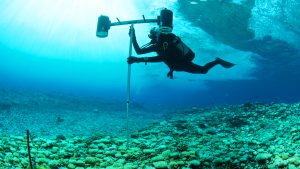
The MBA also has its own laboratory in Plymouth, UK (the Citadel Hill Laboratory) and our scientists there are very good at knowing that their work needs to inform policy. We have scientists who are working on global shark tagging, for example, and that feeds into fisheries, marine protected areas, and high seas treaties discussions such as the BBNJ. The Continuous Plankton Recorder is also hosted at the laboratory by the MBA, with scientists around the world collecting plankton which helps inform discussions around climate change. We also host nationally and internationally important data repositories and work to make sure that the information they contain is passed to those who need it.
The ethos that we have as a membership organisation therefore feeds very strongly into our own laboratory where the scientists do not see the endpoint of their research being just a published paper; they are also engaging with government and other stakeholders. The MBA thus works very well at the science-policy interface.
While many countries benefit from sophisticated, cutting-edge scientific infrastructure, technology and human capacity for science and innovation, major disparities exist in the capacity around the world to undertake marine scientific research. How can capacity be developed in regions that require it, and how can the MBA help?
This is a real challenge and, unfortunately, the UK has recently announced cuts to Overseas Development Assistance which will have a negative impact on people working in this area. However, the MBA is very much a bottom-up organisation; our members are based in over 40 countries and we work and engage with them where we can. One of the things the MBA does not do is parachute science; we do not visit a country, carry out research, write the papers, and then leave.
Indeed, we recently conducted an analysis of who we have published with over the last five years, and this has shown that we have published with scientists in hundreds of different countries, including many which perhaps do not have the same capacities and resources as we have in the UK; but we have conducted the research and written the papers with them, which is incredibly important.
As a membership organisation, one of the things that we are seeking to do is establish more bursary schemes so that we can encourage the cross-pollination of ideas and sharing of expertise. Many of these countries have got brilliant and enthusiastic scientists whose science is just as good as that being done anywhere else in the world, but they might not have the infrastructure or even, in some cases, the funds for travel.
I wrote a report for the Commonwealth Secretariat some time ago which pointed out that while in the UK we are able to pay for large research vessels and autonomous underwater vehicles for survey and monitoring exercises, many countries do not have the money for those resources and are therefore reliant on lower cost options such as citizen science. This is the sort of example where we need to be aware of differences in resource availability, and the MBA has been offering citizen science training and developing methods and standards for citizen science that can be applied anywhere.
Finally, we have also recently established an Equality, Diversity and Inclusivity (EDI) Committee. And while such activities typically focus on issues such as gender and race – which are, of course, important – this group is also being tasked with looking at the whole issue of societal balance in terms of resources, because it simply is not fair that some countries have the resources to train their scientists, while others do not. MBA members from different parts of the world are involved in these EDI discussions, and we hope that it will enable us to better address the question of how to enable people to be a marine biologist regardless of their social background, location, or anything else.
The Ocean Decade will strengthen the international co-operation needed to develop the scientific research and innovative technologies that can connect ocean science with the needs of society. What role will the MBA play here?
I am the President of the European network of marine stations, called ‘MARS’. It is inexpensive to become a member of this network, and it connects a lot of people from all across Europe, regardless of whether they are a small or large laboratory. One of the major things that we have been doing in this network is moving forward with an idea that first emerged a few years ago, namely the World Association of Marine Stations. We submitted a plan for this to the United Nations Decade for Ocean Science and heard recently that it is going to move forward as a stakeholder engagement network, which is great news and we are now looking forward to the next steps.
We are also holding the World Congress of Marine Stations on 17-19 November this year, and have already put the steering group together, which includes members from Japan, Russia, China, and the UK. The idea is to bring together representatives of the 800-1,200 marine stations around the world, mainly using country-wide networks already in existence. And while we may not be able to include all of the world’s marine stations in the first meeting, we hope the network will grow, which is important because when the world’s marine stations were first being established, the vision was that they would all be connected and you would be able to move from station to station, working with different researchers in different places. A World Association of Marine Stations will help to really bring the community together as a network with a huge amount of capacity and resources. This network will also enable us to establish pathways where we can develop reporting mechanisms to governments and other stakeholders.
It is also important to recognise that this is a two-way street: we can use the network to ask politicians and decision makers whether they are aware of a specific environmental issue or new technology that is being developed, while they can ask the network what capacity there is to address an issue they believe to be important. Take ocean acidification as an example: the issue was identified by scientists as early as the late 1950s and became a big focus again in the early 2000s, when scientists identified this as a serious issue. The marine science community was therefore able to feed that information into the policy sphere so that appropriate action could be discussed to prevent further impacts. But while, certainly during the early days of my own career, scientists were highlighting issues to policy makers, the policy community now better understands the problems and are looking for the research community to provide solutions, including those that are Nature-based. This includes things such as transplanting sea grass, rebuilding oyster beds to help filter the ocean, tackling coastal erosion or flooding by increasing mangrove forests or salt marshes, utilising the power of the ocean for more tidal, wave, and wind energy.
The MBA would like to see the network as essentially a conduit for such solutions to be developed and delivered to the people who need them as quickly as possible.
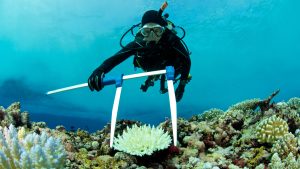
In the coming decade, we have a tremendous opportunity to harness interdisciplinary advances in ocean science to achieve a better understanding of the ocean system. Again, what role can the MBA play and how will this affect future activities? And would you agree that such an interdisciplinary approach needs to be included earlier – in university level education and perhaps even before?
In the UK, the research councils have a key role to play here and UKRI brings together the different research councils, as well as on the innovation and business elements. As such, a more interdisciplinary approach is developing quite rapidly now, with calls for interdisciplinary research programmes to involve social scientists, for example, becoming more common.
You have made an excellent point, however, regarding the integration of this approach within our education system, which I do not believe is being fully realised yet. It is often the case that university students studying subjects such as marine science or oceanography are very heavily trained on the academic side, and rightly so, but they often have a limited knowledge of science more generally and how they – and their field – fit into the wider context. I would like to see that change so that marine biology graduates, for instance, are aware of how the discipline might interact with social sciences or the arts. This is also good for their career, in that they should not see their only option being a PhD, post-doc, and subsequent lectureship, as there are wider opportunities available to them in areas such as communications (as there is a real need for science to be better communicated to the public); publishing (because journals and the magazine industry are absolutely vital to capturing and disseminating information); industries such as renewable energy and offshore wind farms, or aquaculture; or government; and a host of other areas. I would like to see graduates become excited about the future as they embark on their careers, because a degree in marine science can – or at least should – prepare them for a wide range of career paths.
While things are changing now, at least in comparison to my own experience at university some time ago, a lot of work remains to be done to ensure the next generation is trained to be more multi-disciplinary in their approach and perhaps more solutions focused.
It is also important to extend this idea even further, beyond university education to schools. The MBA has a Young Marine Biologist (YMB) category, dedicated to those passionate about marine biology aged 18 and under. We hold a YMB conference each year, with the last instalment seeing young people attend from all over the world. This is a great way to foster this idea of the importance of interdisciplinarity because, although some young people may not be suited or want a future career as a marine biologist in the academic sense, they can still engage with the ocean via a number of different professions which require diverse skill sets. They just need to know that these opportunities are available to them.
Dr Matt Frost
Deputy Director, Marine Biology Association (MBA)
President, European Network of Marine Stations (MARS)
matfr@mba.ac.uk
Tweet @thembauk
www.mba.ac.uk
Please note, this article will also appear in the sixth edition of our quarterly publication.

